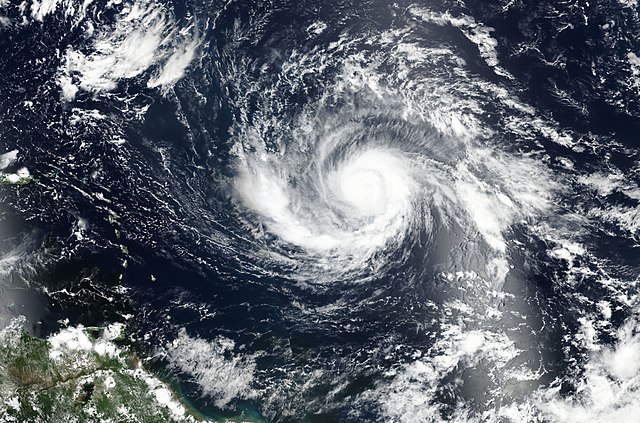dengue fever
See the following -
Costa Ricans Design Mobile App to Report Dengue Breeding Sites
A free app that allows the public to report pools and other areas of water where dengue-carrying mosquitoes have laid their eggs could help control outbreaks of the disease in Costa Rica and beyond, say its developers and health officials. Costa Rican company GeoTecnologías joined forces with the country’s Ministry of Health to develop the Dengue Breeding Report application. The app allows the public to report mosquito ‘hatcheries’ to the ministry and will allow the ministry to map this data. Read More »
- Login to post comments
Florida Facing Threat From Two Mosquito-Borne Diseases
Two mosquito-borne diseases - dengue fever and chikungunya - are posing a serious threat to Florida and residents should take steps to control mosquito populations to try to limit the danger, a leading health expert said on Wednesday...
- Login to post comments
How IBM’s STEM Uses Big Data To Help Fight Infectious Diseases
IBM has teamed up with university researchers to use big data and analytics to predict the outbreak of deadly diseases such as Dengue fever and Malaria. Read More »
- Login to post comments
Hurricanes Harvey and Irma Draw the Line - Time for the US to Embrace Open Source Emergency and Disaster Response
 For nearly 20 years now the global open source community and applications have been a keystone to disaster relief efforts around the world. The enormous number of disaster relief applications and knowledge that has been developed through all these years, should, and needs to be leveraged in the current crisis. For that reason, Open Health News is starting a series of articles to highlight some of the most important solutions. A substantial portion the open source applications for emergency and disaster response that exist are actually already on the news website in the form of articles and resource pages.
For nearly 20 years now the global open source community and applications have been a keystone to disaster relief efforts around the world. The enormous number of disaster relief applications and knowledge that has been developed through all these years, should, and needs to be leveraged in the current crisis. For that reason, Open Health News is starting a series of articles to highlight some of the most important solutions. A substantial portion the open source applications for emergency and disaster response that exist are actually already on the news website in the form of articles and resource pages.
- The Future Is Open
- Login to post comments
IBM And University Scientists Launch Global Computing Effort To Find Cures For Dengue, West Nile, And Hepatitis C Diseases
Researchers Say the 50,000 Years of Computer Time Needed to Discover Cures May Be Achieved in One Year Using World Community Grid Read More »
- Login to post comments
New Data Sources Fuel Understanding of Public Health Emergencies
Remember when Google search results were first used to predict the flu? Now, data from mobile phones, social media and even grocery scanners has been shown to be effective at identifying patterns in epidemics. Standard travel data collection methods, however, are limited and often provide outdated data. Mobile phones, on the other hand, are nearly ubiquitous, and can serve as a rich data resource. Call data, which automatically provides time and location details, can help in understanding human mobility...
- Login to post comments
Open Source Mobile Health Technology Assists with Maternal Care, Epidemics
Mobile health technology may be able to play a strong role in improving healthcare services in third world countries, as one case study illustrated the benefits mHealth brought to several nations in Africa. Whether it's in fighting the Ebola virus or providing maternal medical care, mobile health technology has offered key solutions that have improved the health of citizens in impoverished regions.
- Login to post comments
Pakistan Uses Smartphone Data To Head Off Dengue Outbreak
Algorithms tell government workers where to seek out the telltale mosquito larvae that causes the disease. Read More »
- Login to post comments
Using the Latest Advances in Data Science to Fight Infectious Diseases
 One of the most dramatic shifts in recent years that is empowering epidemiologists to be more effective at their jobs is occurring due to improvements in data technologies. In the past, the old "relational" data model dictated that data had to be highly structured, and as a result treated in distinct silos. This made it difficult, if not impossible, to analyze data from multiple sources to find correlations. Epidemiologists would spend many minutes or even hours on each query they ran to get results back, which is unacceptable when you need to test dozens of hypotheses to try to understand and contain a fast-moving outbreak. (Imagine how you would feel if each one of your Google searches took 45 minutes to return!) By contrast, using newer technologies, the same queries on the same hardware can run in seconds. Read More »
One of the most dramatic shifts in recent years that is empowering epidemiologists to be more effective at their jobs is occurring due to improvements in data technologies. In the past, the old "relational" data model dictated that data had to be highly structured, and as a result treated in distinct silos. This made it difficult, if not impossible, to analyze data from multiple sources to find correlations. Epidemiologists would spend many minutes or even hours on each query they ran to get results back, which is unacceptable when you need to test dozens of hypotheses to try to understand and contain a fast-moving outbreak. (Imagine how you would feel if each one of your Google searches took 45 minutes to return!) By contrast, using newer technologies, the same queries on the same hardware can run in seconds. Read More »
- Login to post comments